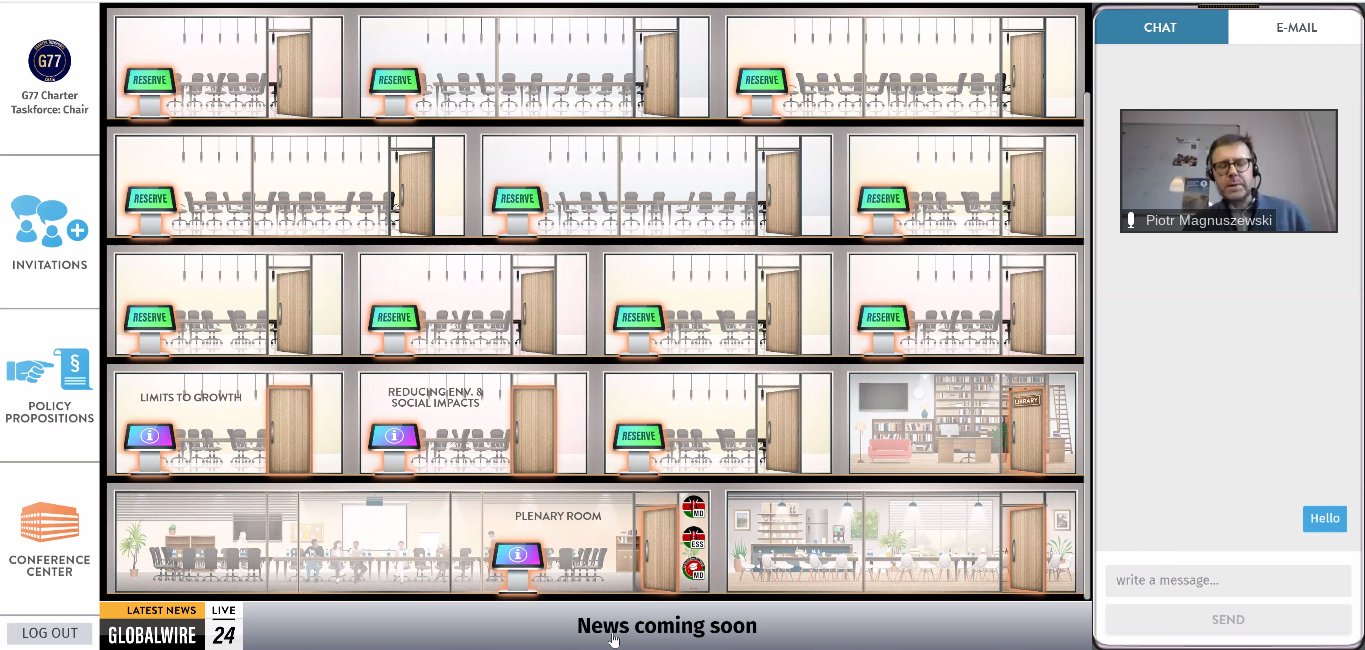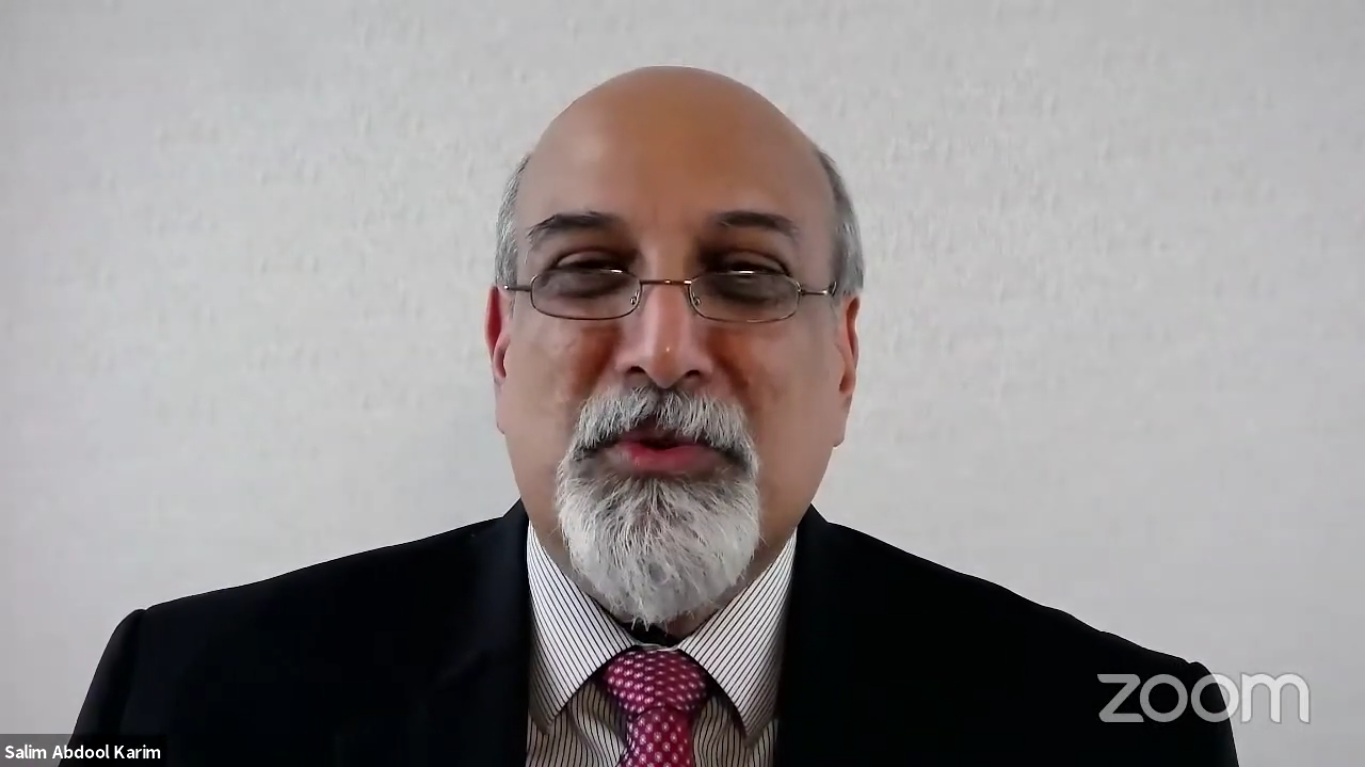A year-and-a-half since the COVID-19 pandemic began, the world has gotten a 'crash course' on how science interacts not only with policy, but with diplomacy. As lessons from this crisis continue to emerge, science diplomats who can bridge the rigorous world of scientific research and consensus-building practices will be increasingly needed.
Fulfilling this demand is the purpose of an initiative from TWAS and the American Association for the Advancement of Science (AAAS) that has been ongoing now for nearly a decade. The Eighth AAAS-TWAS Science Diplomacy Course, which was held from 30 August to 3 September and was all-virtual for the second time, sought to illuminate the principles and virtues of science diplomacy to interested students from around the world.

The AAAS-TWAS science diplomacy programme is a globally respected initiative in the field of science diplomacy. Starting with the first course in 2014, the annual courses have hosted nearly 350 scientists, diplomats and policy experts—including speakers—from more than 70 countries. As usual, the five-day course included talks from experts in the science diplomacy field and break-out sessions in which participants from countries as far ranging as Brazil, Cambodia, Colombia, Cuba, Ethiopia, Ghana, Pakistan and Thailand collaborated to examine the nature of science diplomacy in a series of talks and simulations.
This year, the programme tried a new strategy, said TWAS Executive Director Romain Murenzi, in his opening remarks. They invited pairs of scientists and policymakers to participate in the event, in the hope that it would enhance collaboration across both sectors.
“In November 2020, we convened the first Science Diplomacy Alumni event,” he said. “The feedback we received is that what you learn from this course will significantly help you in your countries play important roles in meeting [...] challenges. Yet, the voice of our alumni was also clear on one point: We need young scientists and diplomats to work alongside institutions to bring about real change.”
The course is important because there is a need to strengthen the connections between the scientific and foreign affairs communities, said AAAS CEO Sudip Parikh, as decision makers across the world face not just COVID-19, but looming challenges, such as climate change and food and water insecurity.
“It’s been extraordinary to see the scientific enterprise pivot to addressing COVID-19 and the threats from this public health pandemic,” said Parikh. “But this crisis will not be the last time that science is going to be essential to society’s triumph over an existential threat.”
The event featured a simulation—led by Piotr Magnuszewski from the Centre for Systems Solutions in Wrocław, Poland, in partnership with the International Institute for Applied Systems Analysis (IIASA) in Austria—in which participants were assigned to represent various government and research organizations during a tense negotiation. The attendees met in virtual rooms and lobbied for their interests during a simulated controversy surrounding critical minerals mining and their effects on production of electric car batteries, as news continuously emerged during their negotiations.
The event also featured panels and presentations of topics such as biodiversity conservation, emerging technology and global equity. Among the speakers during a conversation focused on “Global Health Diplomacy - Effect of COVID-19 on Equity,” was TWAS Fellow Salim Abdool Karim, Director of the Centre for the AIDS Programme of Research in South Africa (CAPRISA).

Abdool Karim said that, among the fundamental problems about how vaccines are being distributed globally, is that the mechanisms available—vaccine diplomacy and market forces—both leave large groups of the global population uncovered. This allows the virus to always find a foothold so that it can mutate into variants and threaten everyone again.
“In a pandemic no country is an island. Every country is dependent on every other country. We have to find the solution that enables vaccines to be distributed in some equitable way,” said Abdool Karim. “Now if you depend on vaccine diplomacy, then only those countries that have something to offer vaccine manufacturing countries will receive donated vaccines [...]. If that’s not bad enough, it’s even worse when you distribute vaccines using market forces, allowing supply and demand to determine who gets vaccines and who doesn’t get vaccines.”
In the days after, the paired groups of policy practitioners and researchers offered their view of how to use the lessons of the AAAS-TWAS course to further science diplomacy in their home countries. Sivmey Hor, a food engineering researcher with the Institute of Technology of Cambodia, and Kuok Fidero, Director General with the National Institute of Science, Technology and Innovation in Cambodia, shared, in a joint report, that they believed issues such as vaccine development had an uncertain future without science diplomacy to support them.
"As a pair of participants, we would like to establish the first-ever science diplomacy network in Cambodia,” they wrote, “while the knowledge gained from the course could be transferred to junior researchers and think tanks in Cambodia through a series of webinars and/or training."
Sean Treacy

